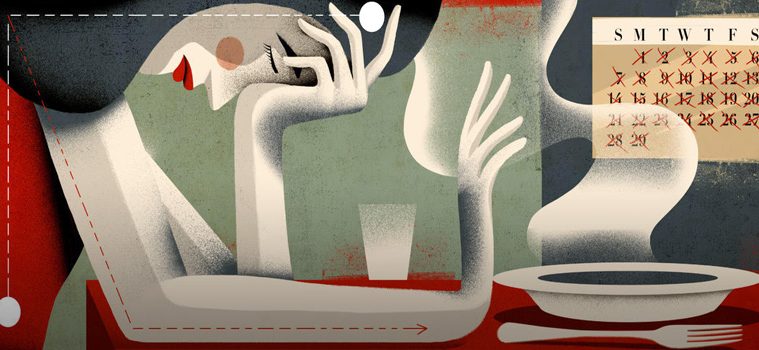LISTEN – Dying To Be Thin –
September 8, 2020 – For most of her 34 years, Stephanie Parker didn’t recognize she had an eating disorder. At age 6, she recalls, she stopped eating and drinking at school — behavior that won her mother’s praise. “It could have started sooner; I just don’t have the memory,” says Parker. In middle school, she ate abnormally large quantities, then starved herself again in the years after.
This spring, it all came to a head: She was confined and alone in her New York City studio apartment, as COVID-19 ripped through the city. The pandemic fomented fear and, for Parker, called up past trauma and aggravated the obsessive compulsive disorder that had started to become apparent years earlier. She realized then her relationship with food was life-threatening.
A survey in International Journal of Eating Disorders in July found 62% of people in the U.S. with anorexia experienced a worsening of symptoms as the pandemic hit. And nearly a third of Americans with binge-eating disorder, which is far more common, reported an increase in episodes.
“Many people in our study … were talking about concerns that their eating disorder would get worse because of a lack of structure, a lack of social support, living in a triggering environment. And now that sense of structure has just kind of gone out the window,” says Christine Peat, a co-author of the study.
“And with that can go the structure you had around your meals and your snacks. ”A boom in teletherapy, Peat says, has helped some people continue to receive care, but it has left many people behind — 45% of respondents — without care.



